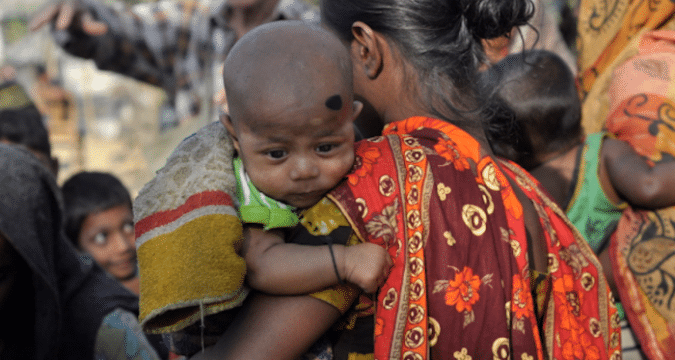
DHAKA (UCAN): Catholics have welcomed a Bangladesh High Court ruling seeking an end to what one termed the “unethical” practice of gender detection of the foetus in a mother’s womb. A two-member High Court bench issued the ruling on February 3 seeking an explanation from the government within six weeks as to why gender detection should not be banned to protect unborn babies and pregnant women.
The court asked respondents to show why their failure to frame guidelines on the issue should not be declared illegal. The respondents are the secretaries to the ministries of health, women and children affairs and social welfare, directorate-generals of health services and family planning, the Department of Women Affairs and the National Institute of Population Research and Training.
The court order was handed down in response to a petition filed by Supreme Court lawyer, Ishrat Jahan, on January 26, which argued that gender detection of unborn babies is a violation of gender equality, the right to life and the right to protection by the law guaranteed by the constitution, The Daily Star newspaper reported on February 4.
In line with Church teaching
The ruling is long overdue and a positive step in the right direction, said a doctor, Edward Pallab Rozario, manager of the community health and natural family planning project of Caritas Bangladesh. The project operates through eight regional Caritas offices across Bangladesh providing medical services including reproductive health.
“Neighbouring India has a law banning gender detection of unborn babies, but Bangladesh does not have one. Thus, many married couples become interested to know whether the upcoming child is a boy or a girl through the use of ultrasonography, which is unethical,” Rozario, medical director of Church-run St. John Vianney Hospital in Dhaka, said.
He added that the practice has become increasingly common in Bangladesh.
“Some family members and relatives put pressure on a new mother to know the gender of the child. Because our society is male-dominated, families are usually happy if they know the child is a boy but become upset if the child is a girl,” Rozario said.
A mother sometimes goes through multiple abortions in the hopes of having a male child. Then she falls into infertility, hormonal imbalance and advanced age. It often leads to family disputes and divorce.
“Once the government comes up with guidelines and a law in response to the court order, it will be very much in line Church teaching—all human beings are created by God and we must welcome each and every one, men and women, boys or girls alike. This is our responsibility to welcome each child as a gift from God,” he said.
Changing mindset
Rita Roselin Costa, a mother of three daughters and convener of the women’s desk at the Catholic Bishops’ Conference of Bangladesh, said that the court order is welcome but it is more important to change the people’s mindset.
“In our society people of all religions—Muslims, Hindus and Christians—prefer a son over a daughter while having their first child. Behind this deep-rooted social practice is our patriarchal societal system,” she said.
“People think that if I have a son my clan will survive, I have no tension for the future and he will look after his parents in their old age. They think the son will always be with them and they will be safe and secure,” she said.
“Often parents think that if they educate daughters up to master’s degree level, they will be married off one day and may earn money but they will spend it on the family of the in-laws. Our society at large has yet to consider in most cases that daughters can get education, prosper in life, earn money and support their parents as well,” Costa said.
She noted that changes are taking place and it will take time to change the mindset, but the ruling will set an example to benefit society in the long run and be a support system for women that stops the abortion of female babies.










